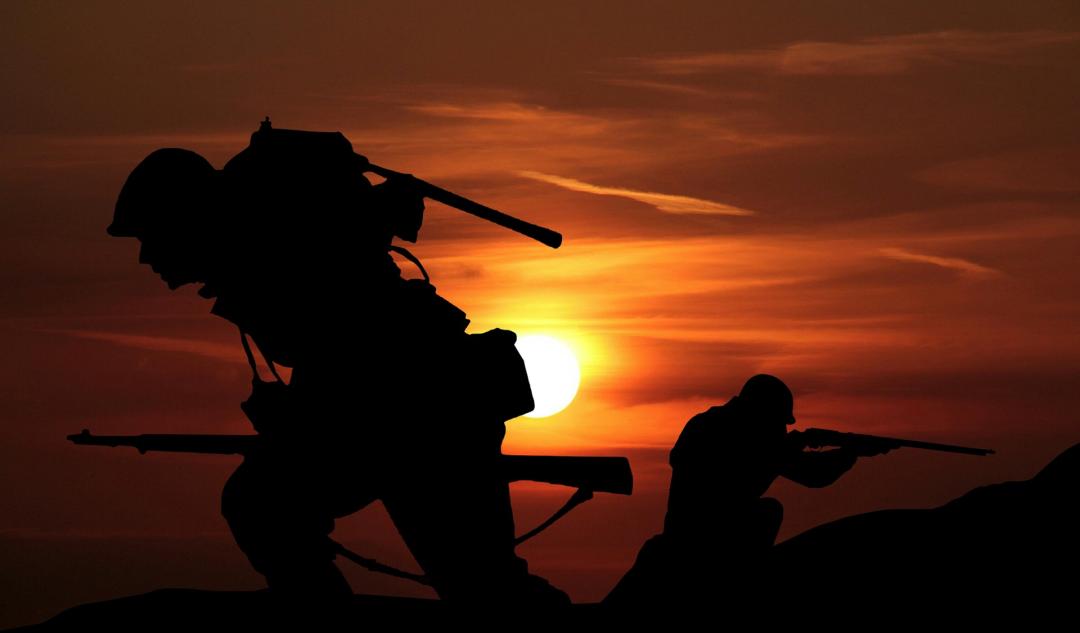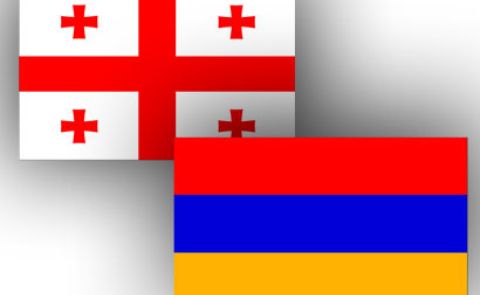
India and Pakistan Enter Caucasus Arms Race

About author: Ilya Roubanis, PhD (EUI, Florence) is an Area Studies expert specialising in the South Caucasus and Central Asia
All eyes in Ukraine focus on the weapons that allies send or fail to do so. The exhaustion of the Russian arms inventory is an afterthought. However, fewer Russian arms in the Caucasus means there is a broader market vacuum that many states are eager to fill, including India and Pakistan. Focusing on the question of “who fills the Russian procurement vacuum,” this paper is based on consultations with ten Azerbaijani, Armenian, Turkish, Iranian, and US sources. The significance of the question at hand is that arms procurement is not merely a question of “transactions,” but part of a broader security and foreign policy relationship.
The friend of a friend is a friend: Turkey, Azerbaijan, and Pakistan
Pakistan’s security relationship with Azerbaijan are of tactical rather than strategic significance. Two analysts that closely track Pakistan’s military partnerships suggest Islamabad dispatched military advisors to Azerbaijan during the 44-day war in Nagorno-Karabakh, passing on mountainous warfare experience acquired during the Swat Valleys’ counter-insurgency operations. Secondary sources suggest Pakistan has been training Azerbaijani military units since 2016.
The overall Azerbaijani advantage in the 44-day war was access to military platforms and know-how unavailable to Armenia. In line with the "one nation, two states” approach, Turkey extended an “all-inclusive” defence package: training, planning, consulting, and arms supplies. Pakistani support was enveloped in this Turkish package. Islamabad shares a range of strategic value chains with Turkey, and consequently, Pakistani and Azerbaijani forces will typically train together in the deployment of systems such as the much-acclaimed Bayraktar drone.
Pakistan shadows Turkish foreign policy in many respects, becoming the most significant source of military procurement for Ukraine outside NATO, supplying Kyiv with projectiles and logistical support while rhetorically keeping a balance with Moscow. In turn, Turkey borrows a leaf from Pakistan’s post-colonial discourse, unapologetically articulating a “Turkey first” policy, as in the case of the procurement by Turkey of the S-400 surface-to-air missile system. In response, the US blocked a $1,5 billion Pakistani-Turkish procurement deal for attack helicopters that relied on US technology, citing the fear of technology leaks from Turkey to China via Pakistan. The Atlantic Council’s senior fellow, Kamal Alam, notes that there was a precedent, recalling how Pakistan facilitated Chinese access to a Black Hawk attack helicopter downed in 2011 during the raid to capture Osama bin Laden. Meanwhile, the former RUSI analyst Umer Karim suggests that Pakistan views Azerbaijan as a prospective client for the JF-17 jetfighter co-developed by Pakistan and China, noting that Turkey is also in the market for a jet fighter.
During a recent Chatham House on “Russia’s War in Ukraine” event, Turkey was widely recognised as a strategic beneficiary. On the one hand, Turkey is a key Russian partner, enabling Russia to acquire products and services that would otherwise be inaccessible due to western sanctions. Turkey is a key Russian partner in oil and gas, nuclear energy, aviation, tourism, construction, food and beverage, and procurement. There are those in Ankara scoffing at the notion that Turkey is exceptional in that respect, as corporations such as Unilever, Barilla, and BMW continue to operate in Russia. On the other hand, Turkey can point to its instrumental contribution to arming Ukraine with strategic systems, particularly drones and armoured vehicles, as well as brokering the Black Sea grain agreement.
That sort of defiantly "Turkey first" foreign policy line is also embedded in Turkey’s security culture; following the 2016 foiled coup attempt, a circle of “Eurasian officers” advocates for closer strategic cooperation with Russia and is critical towards NATO. There is pushback in the West, with former Supreme NATO allied commander James Stavridis going as far as to contemplate NATO eviction publicly. However, Washington’s tribes are polarised and the senior research fellow at the Heritage Foundation, James Carafano, is in good company when arguing that the July 2022 Romney-Shaheen Bill reflects a bipartisan conviction that Turkish and Azerbaijani interests are coextensive to Washington's.
Old friends and new partnerships: Armenia and India
Mirroring the Pakistan-Azerbaijan defence relationship, an Indian-Armenian partnership is emerging to fill the Russian vacuum. The economic vacuum is clearly an opportunity in the Caucasus. Countries like Georgia and Armenia have been able to benefit from the relocation of Russian IT professionals, who come in droves with their networks, data, infrastructure, know-how, and capital. Like Turkey and India, these states also take advantage of transit trade and discounted energy rates. However, they do face the prospect of western sanctions.
India and Turkey stand their ground in Eurasia without fear of sanctions. Following NATO’s retreat from Afghanistan with little regard for Indian interests, there are no qualms about pursuing an “India-first" economic policy. Moscow and New Delhi are relaunching their shared vision of the International North-South Trade Corridor (INSTC), and, like Turkey, India reaps oil and gas discounts and the opportunity for more exports.
However, in India, the Russian security vacuum presents challenges. 70-80% of Indian military platforms are Russian: AK-47 rifles, tanks, missile systems, helicopters, jet fighters, frigates, submarines, and even an aircraft carrier. Historically, the Russians offered cheaper systems with no diplomatic strings attached, better financial terms, and an openness to technology sharing. Therefore, Russia’s procurement retreat calls for India’s domestic evolution of arms systems and new partnerships.
Armenia’s security challenge is more existential in nature. Russia has historically supplied arms to both Armenia and Azerbaijan. Yerevan got better prices and more favourable credit terms, and its singular dependence on Russia outlived the 44-day Karabakh War until the war in Ukraine exhausted the Russian inventory, disrupting the arms supply to Armenia. This development immediately undermined national security as Armenia faces a 140 sq/km incursion of Azerbaijani troops in the country’s southern Syunik region. In this context, India has found an opportunity.
New Delhi’s military-industrial complex is able to deliver state-of-the-art Russian technology arms and can “step in” to snatch clients reliant on this value chain, from Uganda to Armenia. A client like Armenia is not a game-changer for India, but if you aim to evolve your platforms, that is a step in the right direction (Iddon 2023). Indeed, Armenia is procuring a range of strategically significant platforms such as howitzers, rocket launchers, and surface-to-air missile systems, most of which have been developed with Russia but also with Israel. Even prior to the 2020 War in Nagorno-Karabakh, Yerevan identified India as a partner that could facilitate a qualitative upgrade of its systems by ordering radars (2020) and has recently placed the first international order for Indian drones.
This emerging procurement partnership provides Armenia with a greater range of diplomatic options. Public opinion is less than impressed with the benefits of Armenia’s membership in the Russia-led Collective Security Treaty Organisation. Although Yerevan still looks to Russia to retain a peacekeeping force in Nagorno-Karabakh, the Pashinyan government is making an almost theatrical display of its distancing from Moscow.
In looking at India’s engagement in the Caucasus, there is a tendency to invoke the “enemy of my enemy is my friend” dictum. Undoubtedly, Indian security analysts view pan-Turkism and pan-Islamism as detrimental to their national interests in South and Central Asia. Pakistan has not recognised either Armenia as a state or the Armenian genocide and votes with Azerbaijan and Turkey on nearly every UN General Assembly resolution over the questions of Nagorno-Karabakh and Kashmir. The self-branded “three brothers” alliance is also considering the en bloc recognition of the Turkish Republic of Northern Cyprus. Indian diplomacy tends to respond in kind, coordinating with Armenia at the UN General Assembly, and, according to Yeghia Tasjian, an Issam Fares Institute research fellow, his Indian peers refer to Nagorno-Karabakh as a potential “dress rehearsal for Kashmir.”
Rethinking dividing lines
This rhetoric may be overstated. Pakistan’s economy is in tatters, and there is now a school of thought that sees head-to-head strategic competition with India as a lost cause. Nonetheless, India may fear the enduring instrumentality of the Kashmir dispute, particularly as Pakistan brings China into the fold of the “three brothers.” Beijing can capitalise on Islamabad’s soft power over the Taliban and numerous Takfiri networks in Afghanistan. As Russian military power is spread thin in Ukraine, China only needs to stand still to advance in Eurasia with Pakistan's assistance.
Therefore, India needs new partners, and the cultivation of an ever-deeper alliance with France seems to follow this rationale. Two Armenian sources with first-hand knowledge of security affairs suggest that the bridge between India and Armenia was France, which would be consistent with the Paris-Ankara antagonistic relationship. The main issue here is that the consumption of Russian weapons in Ukraine is eating into Russian influence and opening the door to new actors in the Caucasus, not least India and Pakistan. The security landscape is multipolar, transactional, and unpredictable.
Pakistan’s advent into the Caucasus is linked to the development of the Turkish military-industrial complex. India is “stepping in” for Russia, but its objectives are gravitating towards the containment of Chinese and potential Turkish influence. What is clear is that collective security blocks (NATO, CSTO) no longer coincide with defence procurement networks.
See Also


3+3 Initiative as a New Order in the South Caucasus

Economic Cooperation Between Armenia and Georgia: Potential and Challenges Ahead

Russia and Occupied Abkhazia: A New Type of Relations

Georgia and US: From Close Ties to Caution

